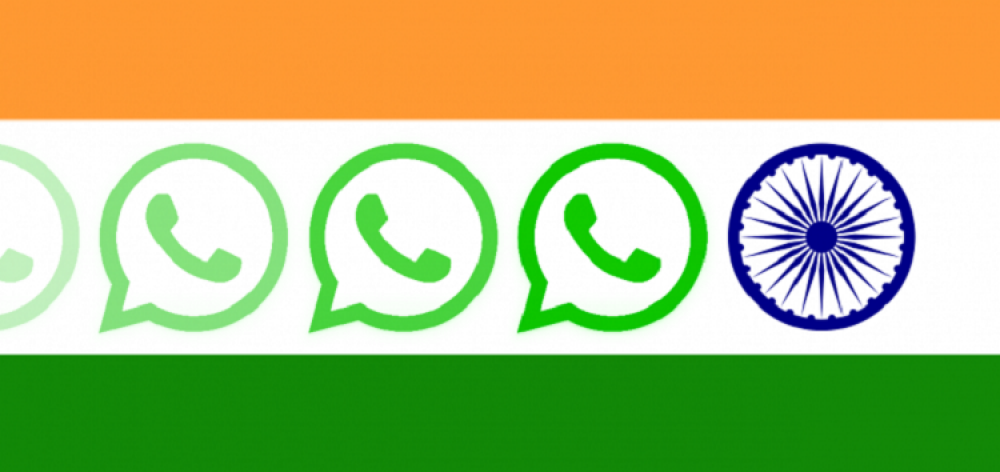
Your chats would no longer be safe if WhatsApp losses end-to-end encryption battle in India
Your chats would no longer be safe if WhatsApp losses end-to-end encryption battle in India
WhatsApp's troubles in India's largest market continue to grow as the Indian government prepares to announce new media regulations that would compel the popular messaging app to violate privacy protections.
When authorities request it, social media companies will be required to identify the "original source of information."
Although the law requires it only for individuals who have been credibly accused of wrongdoing, the Facebook-owned company claims it cannot do so without jeopardizing its lauded end-to-end encryption.
WhatsApp explained that because its messages are encrypted end-to-end, it would have to disable encryption in order for receivers and message "originators" to comply.
Additionally, the code requires large social media companies to appoint Indian citizens to key compliance roles and to remove content within 36 hours of receiving a legal order.
Additionally, they must establish a mechanism for responding to complaints and automate the removal of pornographic content.
WhatsApp goes to court
WhatsApp has filed a legal complaint against the Indian government in the country's capital, Delhi, in an attempt to block the regulation.
According to the suit, WhatsApp is requesting that the Delhi High Court declare that one of the new rules violates India's constitutional right to privacy.
This latest altercation intensifies a growing conflict between the Indian government and WhatsApp in the company's largest market.
The company was recently given a one-week deadline to withdraw its updated privacy statement or face legal consequences under the country's laws.
WhatsApp risks social media immunity
Although WhatsApp has filed a lawsuit, no date has been set for its review by the court. While the verdict is pending, WhatsApp must decide whether to comply with or disobey the new law.
If it chooses not to comply, it risks losing the legal protections afforded to social media companies under Indian law.
According to India's Ministry of Information Technology's Intermediary Guidelines and Digital Media Ethics Code, "significant social media intermediaries" risk losing protection from lawsuits and criminal prosecution if they violate the code.
However, WhatsApp has a reasonable chance of winning the lawsuit. The company noted that the 2017 Indian Supreme Court decision in favor of privacy in the Puttaswamy case is a sound and valid precedent.
The court had previously ruled in the Puttaswamy case that privacy must be protected except when legality, necessity, and proportionality all weigh against it. WhatsApp believes that the new law fails to meet all three of those criteria, beginning with the absence of explicit parliamentary support.
WhatsApp end-to-end encryption in Jeopardy
WhatsApp has made significant investments in India, and its efforts have been rewarded by the country's impressive adoption rate. All of this, however, may be jeopardized by the Indian government's heavy-handed regulation.
If the Media Law is implemented, the company owned by Facebook will be compelled to comply. This effectively ends the company's most popular and unique end-to-end encryption offering.
This, however, may not be limited to India's borders. For years, numerous governments have attempted to enact regulations that would breach social media's security barrier.
A quick reminder about the proposed Social Media bill in Nigeria in 2019.
If the Indian government succeeds in bypassing, other governments may follow suit and demand access. As a result, there is no guarantee of the safety or security of user data or chats. In summary, your secret has been revealed.
Other social media companies react
WhatsApp is not the only company to face the Indian government's wrath. Twitter was recently humiliated by an Indian police officer who paid a visit to its office after labeling posts by a spokesman for the ruling party and others as containing "manipulated media."
Companies' responses to the new rules have generally ranged from silence to partial acceptance.
Facebook says it agrees with the majority of the provisions but is still negotiating on a few points. Twitter, for its part, has not responded.
In conclusion
While other social media platforms can circumvent India's new rule, WhatsApp's end-to-end encryption puts them in a bind.
The company cannot simply threaten to exit the market, as Google did in Australia, because India is the company's largest market and a potential market for its new WhatsApp Pay.
Conforming to government rules, on the other hand, may have more dire consequences, as trust remains low in the aftermath of the new privacy policy's backlash.
Courses and Certification
Social Media Marketing Course and Certificate

